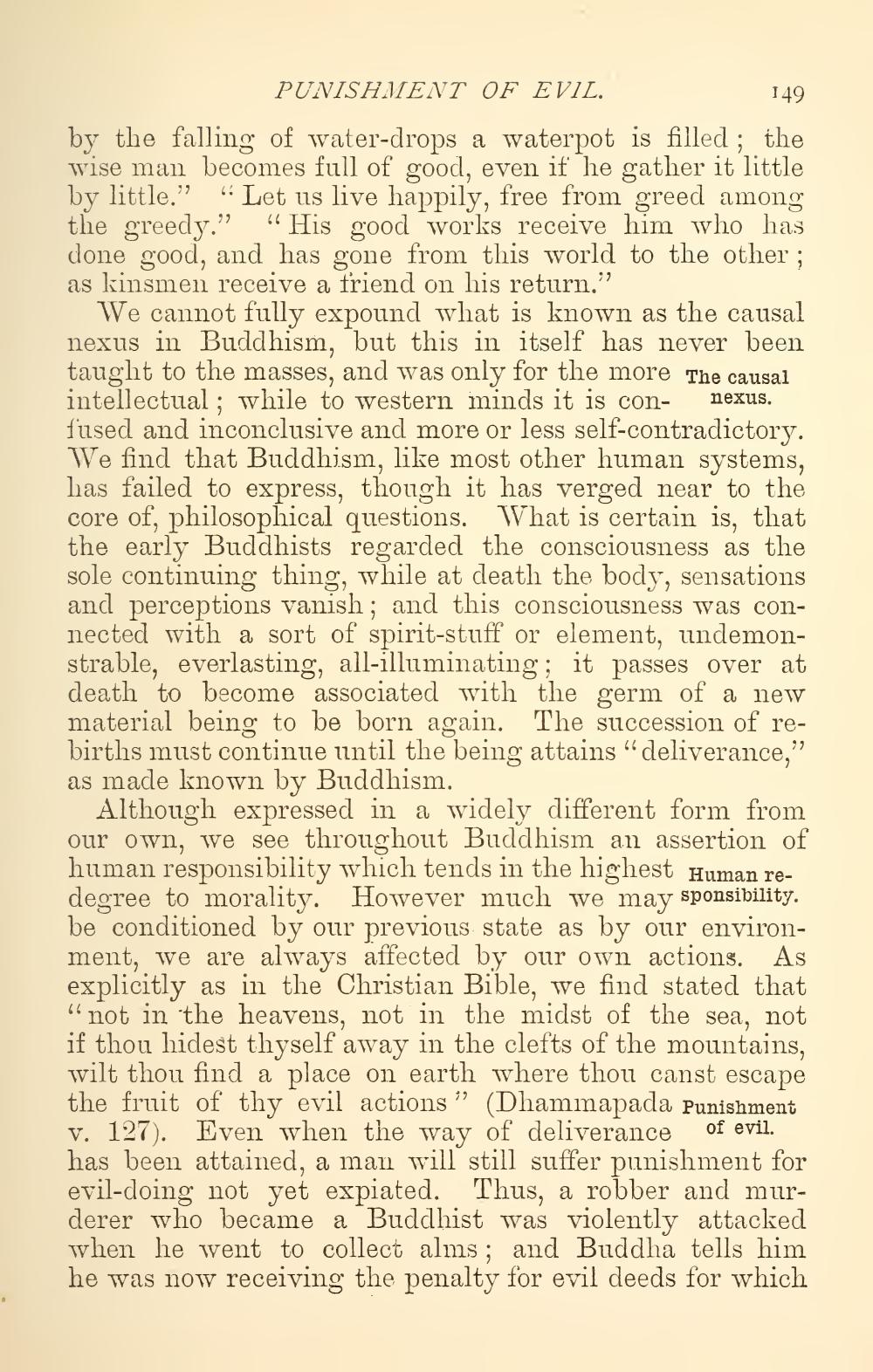________________
PUNISHMENT OF EVIL.
149 by the falling of water-drops a waterpot is filled ; the wise man becomes full of good, even if he gather it little by little." "Let us live happily, free from greed among the greedy." "His good works receive him who has done good, and has gone from this world to the other ; as kinsmen receive a friend on his return."
We cannot fully expound what is known as the causal nexus in Buddhism, but this in itself has never been taught to the masses, and was only for the more The causal intellectual; while to western minds it is con- nexus. fused and inconclusive and more or less self-contradictory. We find that Buddhism, like most other human systems, las failed to express, though it has verged near to the core of, philosophical questions. What is certain is, that the early Buddhists regarded the consciousness as the sole continuing thing, while at death the body, sensations and perceptions vanish; and this consciousness was connected with a sort of spirit-stuff or element, undemonstrable, everlasting, all-illuminating; it passes over at death to become associated with the germ of a new material being to be born again. The succession of rebirths must continue until the being attains "deliverance," as made known by Buddhism.
Although expressed in a widely different form from our own, we see throughout Buddhism an assertion of human responsibility which tends in the highest Human redegree to morality. However much we may sponsibility. be conditioned by our previous state as by our environment, we are always affected by our own actions. As explicitly as in the Christian Bible, we find stated that “not in the heavens, not in the midst of the sea, not if thou hidest thyself away in the clefts of the mountains, wilt thou find a place on earth where thou canst escape the fruit of thy evil actions" (Dhammapada Punishment v. 127). Even when the way of deliverance of evil. has been attained, a man will still suffer punishment for evil-doing not yet expiated. Thus, a robber and murderer who became a Buddhist was violently attacked when he went to collect alms; and Buddha tells him he was now receiving the penalty for evil deeds for which




